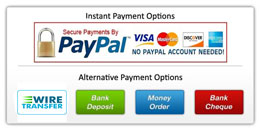In an ever-evolving real estate market, the question “Can I sell my house for cash?” is becoming increasingly relevant for homeowners looking to sell their properties. Selling a house for cash can offer a streamlined and often quicker alternative to the traditional home-selling process. This guide explores the nuances of cash sales, from the benefits and steps involved to the legal considerations you should be aware of.
Selling a house for cash means that the buyer does not seek financing from a bank or mortgage lender to purchase the property. Instead, they have the funds available to buy the house outright. This method of sale can significantly simplify the transaction process, bypassing many of the hurdles associated with loan approvals, appraisals, and potential financing contingencies.
The appeal of cash sales lies in their simplicity and speed. Sellers can often close deals within weeks, avoiding the months-long wait times associated with mortgage processing. There’s reduced paperwork, fewer contingencies, and a lower risk of deals falling through due to financing issues. Additionally, cash sales can be more straightforward, with sellers not needing to worry about the buyer’s loan approval.
Choosing to sell your house for cash depends on several factors, including your timeline, the property’s condition, and market dynamics. If you’re in a hurry to sell due to relocation, financial needs, or an inherited property you don’t wish to maintain, a cash sale could be ideal. Similarly, if your home requires significant repairs, selling for cash to an investor who plans to renovate could be more beneficial than undertaking the improvements yourself.
Even in a cash sale, presenting your house in its best light can result in better offers. Address any minor repairs and consider some cosmetic improvements to make the property more appealing. Staging your home effectively can also make a significant difference. Ensure you have a realistic valuation to guide your expectations for cash offers.
Real estate investors are a common source of cash purchases, often looking for properties they can renovate and resell or rent out. Online platforms and real estate auction sites can also connect sellers with potential cash buyers. In some cases, marketing your property as open to cash offers can attract the right buyer directly.
The cash sale process typically begins with the seller reaching out to potential buyers or vice versa. After inspecting the property, the buyer may make an initial offer. If accepted, a more detailed inspection follows, leading to a final offer and closing. This process can be much faster than traditional sales, often closing within a few weeks.
Legal Considerations and Pitfalls
While cash sales can be straightforward, it’s crucial to navigate the legal aspects carefully. Ensure all agreements are in writing and seek the advice of a real estate attorney to verify that all legal requirements are met. Beware of scams and too-good-to-be-true offers, which are red flags for potential fraud.
Comparing Cash Offers with Traditional Sale Offers
When evaluating cash offers, consider the net proceeds you’ll receive compared to a traditional sale. Cash offers may be lower, but when accounting for the absence of agent commissions, repair costs, and the value of a rapid sale, the difference may be justifiable. Consider your priorities and the current market to decide which route is more advantageous for your situation.
Success Stories: Real-Life Cash Sale Examples
Many sellers have found success through cash sales, citing the ease and speed of the process as major benefits. Case studies highlight scenarios where sellers avoided foreclosure, disposed of inherited properties quickly, or sold homes that would have been challenging to move in a traditional market due to their condition.
Frequently Asked Questions (FAQs) about Selling Your House for Cash
Frequently Asked Questions (FAQs) about Selling Your House for Cash
Q: How quickly can I sell my house for cash?
- A: Transactions can close in as little as a few weeks, depending on the buyer’s readiness and the property’s condition.
Q: Are cash offers for houses typically lower than market value?
- A: Cash offers may be below market value to account for the buyer’s risk and investment in repairs or renovations. However, the convenience and speed of the sale often offset this difference for sellers.
Q: How do I know if a cash buyer is legitimate?
- A: Research the buyer or investment company, request proof of funds, and consult with a real estate attorney to ensure legitimacy.
Q: Do I still need an appraisal for a cash sale?
- A: While not required, some buyers may request an appraisal or inspection to ascertain the property’s value and condition.
Q: Can I sell my house for cash if there’s a mortgage on it?
- A: Yes, you can sell your house for cash even if it’s not fully paid off. The sale proceeds would first be used to pay off the remaining mortgage balance.
Selling your house for cash can offer a fast, less complicated path to divesting your property. While it may not be the perfect solution for every seller, it’s an option worth considering, especially in situations requiring speed or when dealing with properties that might not fare well in the traditional market. As with any real estate transaction, it’s crucial to do your homework, understand the process, and consult professionals to ensure a smooth and successful sale.




